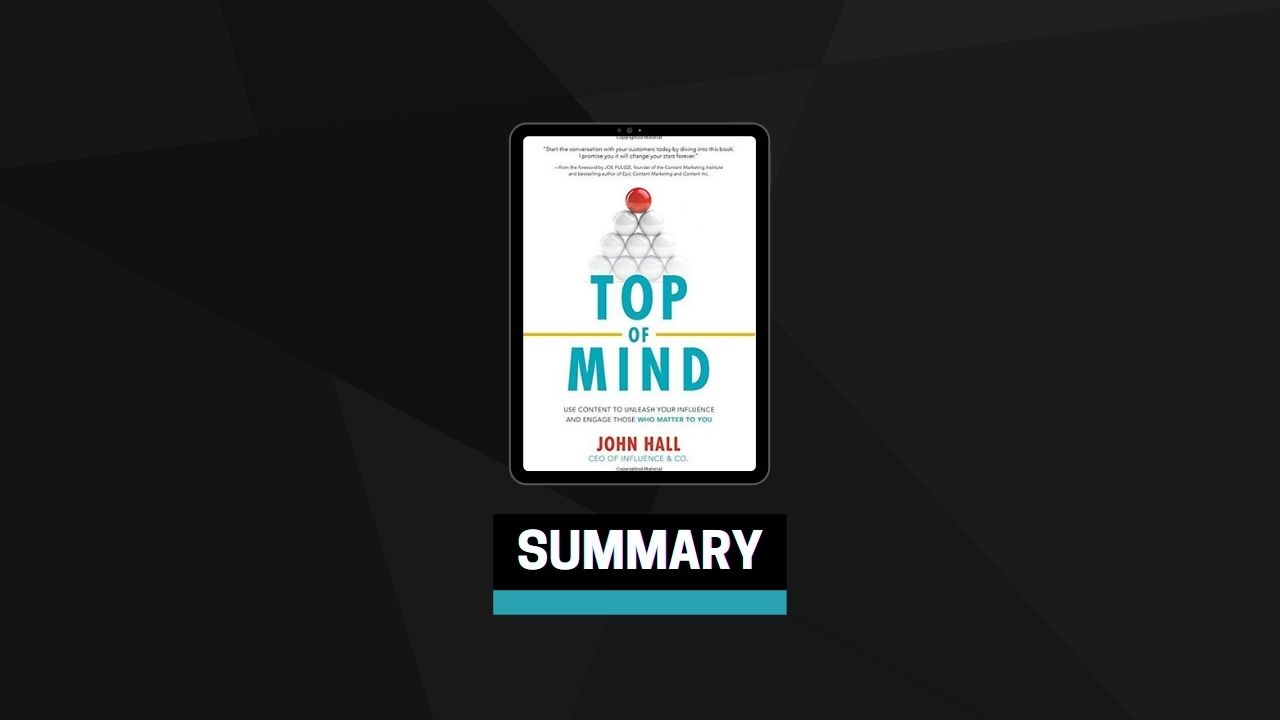What Consumers are Looking for in Brands They Trust
Trying to force another human being to trust you is both manipulative and counterproductive. You can’t make someone feel an emotion; you can only create the conditions for that emotion to emerge organically.
The following touch points are ways to create these conditions. Because we’re dealing with complex human emotions, don’t think of this as a rigid checklist that will guarantee a specific set of results. Instead, think of it as a fluid set of guidelines for carrying yourself in a way that invites people to trust you.
Authenticity
You cannot trust what you don’t believe to be real. And yet so many of us contort ourselves into some premade mold of what we think we’re supposed to be. The introverted entrepreneur strains to be the life of the party, and the fun-loving CEO forces a constant scowl to come off as a person of seriousness.
What is true in your personal life is just as true in your professional one: bullshit derails relationships. When you pretend, not only are you putting distance between yourself and your next opportunity, you’re making yourself miserable as well.
Helping Others
If you’re still skeptical about whether it’s possible to create opportunity for yourself, try doing it for someone else. It might sound counterintuitive, but one of the best ways to help yourself is to help others.
It’s easy: each time you speak to someone, simply close the conversation by asking, “How can I be helpful to you?”
Being this direct will give you insight into the barriers that stand between this person and his goals—and how you can help dismantle those barriers. Sometimes doing so is easy and all you have to do is shoot off a quick e-mail or make a phone call to connect people to the resources that will help them meet their goals.
Likability
Likability matters. It’s hard to trust someone you don’t like. Because we are passionate, high-energy people, this is something that many entrepreneurs and executives struggle with, as the intensity of our passion can easily rub others the wrong way. It’s necessary to find a balance between intensity and accessibility, one that neither suppresses nor sacrifices authenticity.
Finding that balance starts with understanding yourself and your personality and exactly what kind of “likable” you want to be.
Familiarity
Familiarity is the other side of the likability coin—it evokes a sense of closeness, a feeling of genuine connection. Familiarity emerges at its purest in face-to-face conversation.
Imagine yourself at one of those networking sessions where everyone you talk to is looking slightly beyond your left ear, scanning the room for someone more important. After a few of these interactions, you meet someone who is actually curious—not only about your business idea but about you as a person. The questions are real without being intrusive. Where did you grow up? Where do you get your ideas? What do you love about what you do? Just imagine how this person would stand out from the rest.
Brand and Thought Leadership
If you treat your brand as an afterthought, you’re simply fortifying the barriers between yourself and opportunity creation. A vibrant, flourishing brand is one of your most powerful tools in creating trust and opportunity.
Take a look at Tesla. If you’re not a luxury electric vehicle industry insider, you may not know much about the inner workings of the company. Chances are, however, that you’re familiar with Elon Musk’s reputation as rocket scientist/climate activist/genius innovator—or, as blogger Tim Urban calls him, the “world’s raddest man.”
Content Triggers
Have you ever read an article that feels like it was written especially for you? Maybe it answers a specific question you’ve had on your mind for a while or it gives you some piece of advice that seems tailor-made to your life situation. When this happens, it creates a sense of connection to the author that makes you want to read everything she’s ever written and anything she’ll ever write.
Education
Education is the most important trust point because knowledge is power. When you educate people, you are empowering them.
All of the previous touch points fall under the umbrella of education in one way or another. One of the most effective and easily scalable ways to unify these practices is through high-quality digital content.
Content’s potential as an educational tool is limitless. Use it to share whatever knowledge you have that others will find valuable—industry insight, best practices, experiential learnings—and they will reward you with trust.
The Golden Rule of Communication
Sometimes what you have to say and how you say it matter less than why you’re communicating in the first place. Your job then becomes to identify why and clearly relay it to your audience to compel them to take some kind of action.
Consider the following two calls for funding:
- The American Red Cross provides services in five key areas: disaster relief, support for America’s military families, blood donations, health and safety training, and international humanitarian work. Donate today to sustain the vital work that we do.
or
- The American Red Cross exists to provide compassionate care to those in need. Our network of generous donors, volunteers, and employees share a mission of preventing and relieving suffering, here at home and around the world, through five key service areas. With your help, we will work toward a world in which everyone can live a full, healthy, and vibrant life.
Which one makes you reach for your wallet?
Number 1 is nothing if not informative. Reading it gives you a solid overview of the Red Cross’s program areas. If you already care deeply about any of these areas or if you’re already a longtime Red Cross donor, this could motivate you to make a donation.
However, most readers will find Number 2 infinitely more compelling. The language is richer—phrases such as “compassionate care,” “preventing and relieving suffering,” and “full, healthy, and vibrant life” grab you on an emotional level. Emotionally charged language can go a long way in establishing connections to potential donors.
Number 2’s real power, though, is rooted in something deeper than word choice.
Whereas Number 1 tells the reader what the Red Cross does, Number 2 talks about why the Red Cross exists. And building your message around the why is absolutely vital for effective communication. As Simon Sinek explains in his fantastic TEDx Talk, “How Great Leaders Inspire Action,” “People don’t buy what you do; people buy why you do it.”
Why Am I Creating This Content?
In her post “5 Powerful Rules for Women Entrepreneurs to Live By,” Sumi Krishnan, the founder of K4 Solutions, says this:
When I became an entrepreneur, I was motivated by one thing: freedom. I wanted the flexibility to follow my dream. Entrepreneurship allowed me to do work that was engaging and empowering. … But there’s no magic formula for entrepreneurial success, of course. Stepping into the unknown is scary—and many women doubt their abilities, feeling like impostors. “I believe that no matter how thoroughly prepared a woman might be, she will feel unprepared, whereas a man will feel even more prepared than he really is,” [CEO of Pearl Aqua LLC Linda] Shesto says. Unfortunately, research supports this notion. Here, then, are five strategies to help you crush these types of entrepreneurial fears and succeed even as you step into the unknown.
Why did Krishnan create this content? Her purpose is crystal clear: to equip her fellow women entrepreneurs with strategies for conquering their most common fears. She knows her audience and is speaking directly to them on both an emotional and a practical level. Notice that Krishnan shifts the spotlight, making room for voices other than her own. By sharing lessons gained from personal experience—both from her life and from the lives of other women entrepreneurs—Krishnan’s fundamental message to her reader is “Don’t worry. You’re not the only one struggling with fear. As women, we can understand, support, and nurture each other, because we’re all in this together.”
Krishnan is a thoughtful, emotionally intelligent writer who clearly cares about the needs of her audience. Her sense of purpose shines through in her content, and it clearly resonates with her readers. By writing to enhance the lives of her audience, Krishnan earns their trust—and for many of them, she will likely become top of mind.
Why Does My Company Exist?
Yvon Chouinard is the founder of iconic outdoor apparel company Patagonia. His reflective piece “On Corporate Responsibility for Planet Earth” opens:
As an alpinist who set out to make gear for my friends and never thought of myself as a “businessman” until long after I became one, I’ve wrestled the demons of corporate responsibility for some time. Who are businesses really responsible to? Their shareholders? Their customers? Their employees? None of the above, I have finally come to believe. Fundamentally, businesses are responsible to their resource base. Without a healthy planet there are no shareholders, no customers, no employees. As the conservationist David Brower liked to say, “There is no business to be done on a dead planet.”
But what does behaving responsibly to the environment mean? It took me nearly 25 years in business to learn how to ask that question. It has taken another 15 years of trial and error to uncover the process that Patagonia—or any environmentally minded company—has to go through in pursuit of answers. I think I know how to break that process down to five steps. These steps apply to individuals as well as to companies who want to reduce the harm they do and make a difference.
Reading this piece, it’s immediately clear that Patagonia is, first and foremost, a group of people devoted to mitigating the impact that humans have on the natural world—they just happen to do this by selling environmentally sustainable outdoor gear. However, the piece explains that business is just one avenue for creating positive change: Chouinard argues that any company striving to be sustainable must not only reduce its environmental costs, it must also nurture civil democracy by giving direct support to frontline activists, as well as lobbying for industrywide changes toward fairness and sustainability.
Patagonia’s purpose serves as an invitation for readers who are passionate about the environment to join the company in fighting for the Earth.


